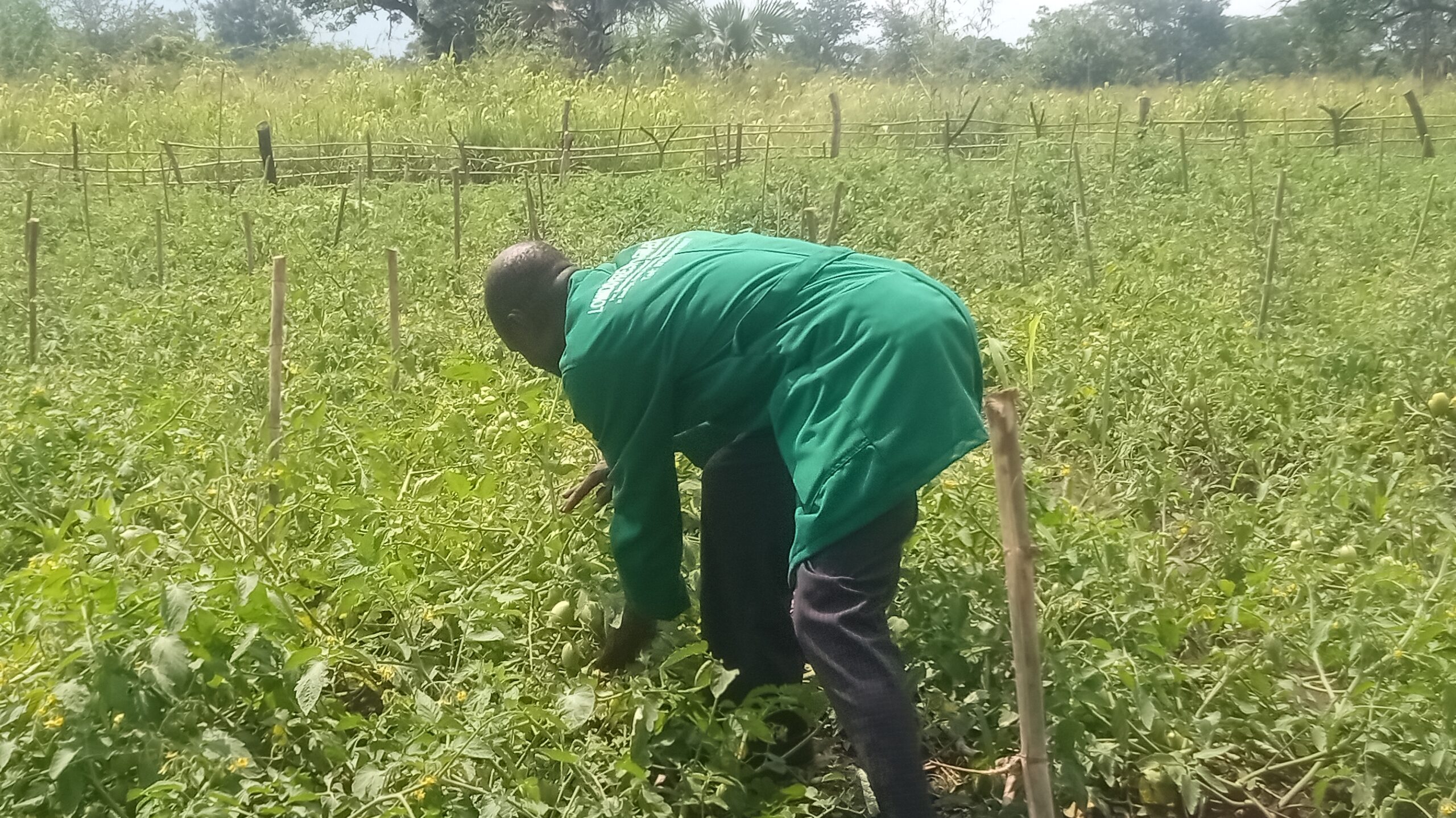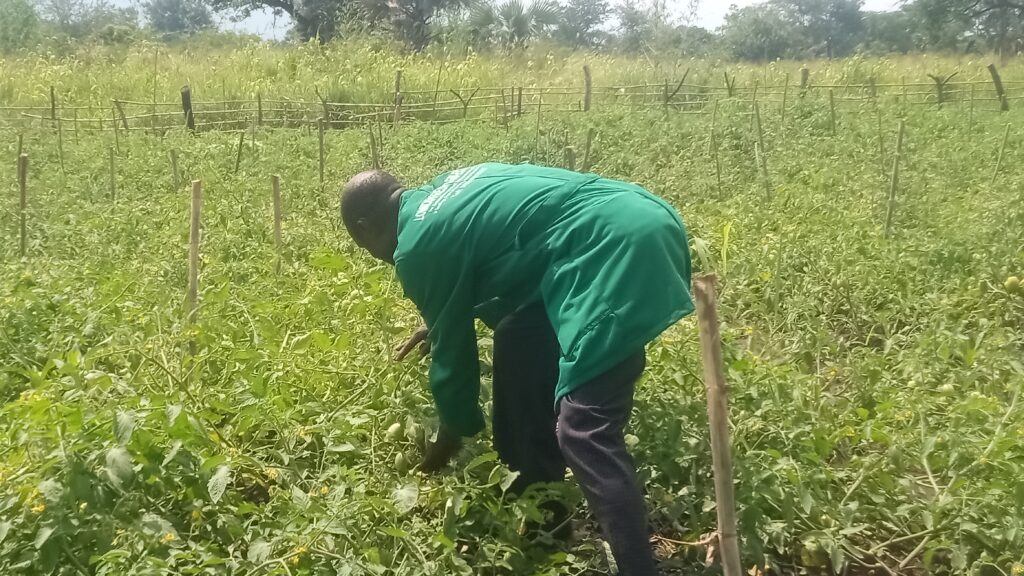
 Tembo FM
Tembo FM

 Tembo FM
Tembo FM
15 August 2025, 6:15 pm

By Otim Moses
Farmers in Lamwo District are adapting to the severe effects of climate change by turning to irrigation to sustain food production. In recent months, unpredictable rainfall and prolonged dry spells have slowed agricultural productivity, leaving many farmers struggling to feed their families.
Mr Opio Samuel Wellborn, proprietor of Lamido Fresh Agro Eco Farm in Guria West, Lukung East Sub-County, Lalaka Parish, is among those leading the change. He has invested over UGX 15 million in climate-smart farming technologies, including a hand-walker tractor, a large generator, a sprinkler irrigation system, and extensive land preparation.
Speaking to Tembo FM, Mr Opio explained that the decision to adopt irrigation was driven by the urgent need to overcome climate-related weather disruptions. His farm now produces tomatoes on 1.5 hectares, projected to generate UGX 25 million, along with eggplants, papaya, yams, rice, guava, and African eggplant (ntuula).
He sources improved seeds from suppliers such as the Francs Group and Omia Group in Kitgum. These seeds are bred to withstand pests, diseases, and irregular weather patterns, while using water and nutrients efficiently.
“Even when the rains fail, irrigation ensures my crops survive,” Mr Opio said. “Yes, the costs are high—pesticide spraying can reach UGX 90,000, and organic fertiliser is expensive—but the results are worth it.”
Mr Opio urged Lamwo District Local Government to support farmers in adapting to climate change by promoting modern farming methods, providing quality seeds, and linking farmers to stable markets.
Ms Aryemo Scovia Lilian, farm manager and extension worker with Lamwo District Local Government, noted that irrigation allows farmers to grow crops year-round despite erratic weather. She has been training farmers in weed control, seedling transplanting, ploughing, irrigation techniques, and climate-resilient practices.
She encouraged the community to adopt irrigation as part of a broader climate adaptation strategy and appealed to local authorities to improve roads connecting farms to markets, such as the Palabek Abera–Paluda Settlement road and the Ngomoromo–Lamwo Town Council route.
“In the face of climate change, irrigation is not just a choice—it is a necessity for food security, economic growth, and environmental sustainability,” Ms Aryemo stressed.